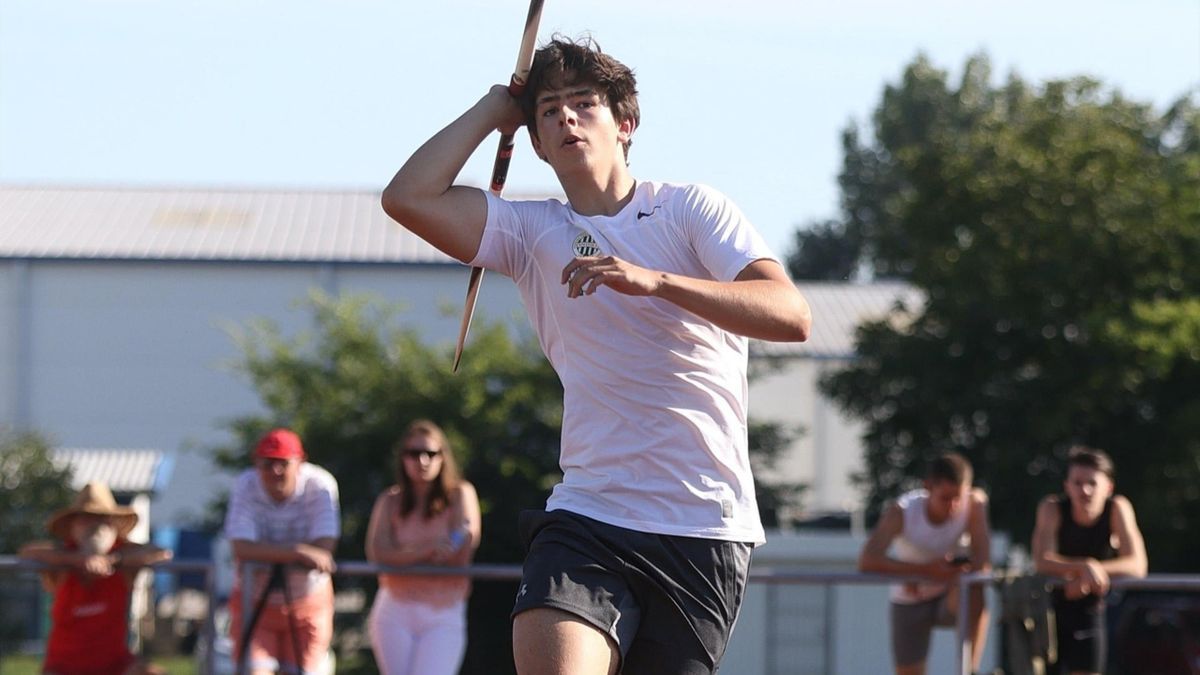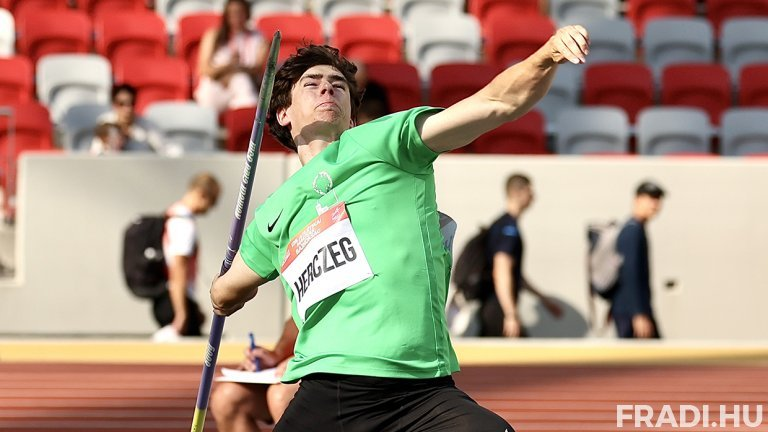The journey to Olympic games – interview with György Herczeg

Hungarian newspapers like Nemzeti Sport Online, Blikk and many others have already reported on the 19-year-old javelin thrower, who in July of 2023, in Eisenstadt set a new Hungarian record. With a throw of 84,98 meters, he became one of the bests and it’s not a secret that his goal is to be able to attend the Olympic games.
“Under the influence of the 2012 Olympic games in London, I started javelin throwing with my sibling. Since then, our father has been our coach, who did Decathlon when he was younger (in which javelin throwing is also included). That is why we tried ourselves out in a few branches of athletics, but I liked this one the most.”
György has been doing sports ever since he was 4 years old. In the beginning he was swimming a lot, but after a while he found it to be too monotonous. After trying out a few of the athletic events, he picked javelin throwing. “This one I enjoyed the most. And this one I felt the most talented at.”
He told us, he is very grateful that in his childhood his father motivated him to go to practice. According to him, many children realize very late which hobby or sport they want to start. In this age it’s hard to keep focus, and decisions like these get questioned very often. The second motivational factor was when Miklós Németh, Olympic champion, also joined the crew. “It made me even more stable that I can count on him as well. He helped me a lot in improving my technique, he shared many tricks thanks to which I was able to throw with the same amount of strength even further.
When we asked him about what it feels like to be trained by one’s father, he could only mention advantages. As one of the most important positives, he highlighted common goals.
“We work for the same goal. This was a joint journey; we were growing together. We learned from our mistakes and put together the practice plan so that it is as optimal for me as possible. If I ever had a problem, we could always talk about it.”
It is the same during his university years, because his practice plans adapt to his studies.
It might be surprising, that a professional athlete besides constantly going to competitions, is studying at university, moreover even goes to classes like anyone else. Not just to any kind of courses, since economics and finance-mathematical analysis major isn’t one of the easiest. The question arises, why would someone choose sport and studying parallel to each other. In György’s case we can say the decision was natural, because he has always been a bright student and aimed to perform at his maximum in both fields.
“I was sure I was going to go to a university. During my career in sports, I was injured multiple times. At a younger age one can recover a lot more easily, but later on, as a 20–25-year-old an injury can take away from you more time. Even years can be omitted. At times like these I wouldn’t want to just live idle, without any ambitions.”
Of course, the life of a university student athlete isn’t free from difficulties. Even though Corvinus university’s individual curriculum helps a lot in managing everything, the lack of free time is the biggest disadvantage for him. Besides constantly studying, the right amount of sleep is vital, which let’s face it, isn’t always the easiest to keep. Overall, György highlighted the importance of continuity, since “if even just one week is left out, the weeks after that fall out too.”
For that reason, he plans his weeks precisely and there really isn’t one day when he isn’t studying or practicing. It has happened before once that he felt like everything is too much, when after a competition he didn’t have enough time to sleep. On top of that, this life has other disadvantages too, like not being able to join a student organization, and also only having a night out just once a month. Of course, it happens occasionally that he’s feeling unmotivated and doesn’t feel like going to practice. György mainly felt like this during his first exam period, when he wanted to focus completely on studying for exams. Later this paid off, because his achievements had a good influence on him when doing sport, he felt free and improved better.

source: fradi.hu
As an athlete one can travel a lot. Which places have you visited, which were your most influential experiences?
“The first time I visited Tallinn in Estonia, was in 2021 due to the U20 European Championship. The next year I went to Columbia, to attend the U20 World Championship. In 2022-23-24 I participated in the “Throw Europe Cup”, which is always organized in March, in Leira. And last year I went to the U20 European Championship, in Jerusalem.”
As one of his favorite competitions he mentioned last year’s European Championship, because he managed to win, even though he was injured at the time. After taking in painkillers, he had to be present acting like nothing happened. Another one of his favorites was organized in Eisenstadt called Austria Open, where he achieved an exceptionally high score, 84,98 meters. This competition decided his chances to go to the world championship, but he didn’t have high hopes about succeeding. Like so, he had the chance to compete without any expectations or pressure, which yielded results.
Finally, we asked him about the handling of failures. He told us that when this happens, he needs time and the best thing is, if he distracts himself with something else. The same happened last year after the world championship, where he couldn’t achieve the desired results, like a month before. Of course, his injury, the exhaustion after rehabilitation and the expectations all contributed to that. However, coming back to the university had a positive influence on him.
So that is what you think is the most important in this matter? To distract oneself with something else?
“Yes, I believe this is most important. We can experience failure in other fields of life as well. If this happens, we shouldn’t withdraw into ourselves and do nothing, because we don’t have enough motivation. One should always have something additional we can count on. For example, we can work on self-development or deal with things like that.”